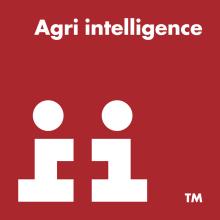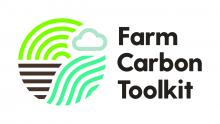The NCS project will achieve a reduction in annual CO₂ equivalent emissions through:
- Increasing pulse and legume cropping areas to the rotational optimum of 20% (1M ha) across UK farms. This would reduce nitrogen fertiliser use by 233,000t, resulting in 0.55M tonnes CO₂e reduction.
- Using the subsequent produce in animal feed, replacing 50% of imported soya meal and delivering a further 0.7M tonnes CO₂e reduction.
- The residual nitrogen benefit to following crops through soil enrichment, leading to an additional 0.25M tonnes CO₂e reduction.
These changes will deliver a national cost saving to UK Farming of £1032M per annum, by removing 20% of nitrogen fertiliser across UK growers and 1.8M tonnes of soya imports from the UK farming supply chain.
Part of the project will be to develop a policy tool for Government that helps the adoption by UK farm businesses of measures and cost-effective solutions for transitioning agriculture to a greener, more resilient future and accelerating the path to Net Zero.
The farmer-led trials, carried out by the Pulse Pioneers, will play an essential role throughout the four years of the project in informing the practices that will achieve this.
And it will be the farmers in the PulsePEP (Performance Enhancing Platform) who will benefit first from the environmental and financial gains of the research solutions developed.
The initial step will be to recruit farmers, scientists and tech innovators as active members of the PulsePEP community – a platform and knowledge exchange hub that will be developed by the consortium, led by ADAS.
Getting farmers involved and engaged will be led by BOFIN, with the help of LEAF, Agrii, PGRO, ADAS YEN and other consortium partners.
The aim is to establish a core group of 200 farmers, who will all receive tailored assistance from the Farm Carbon Toolkit (FCT) to establish their true carbon baseline and whose GHG emissions will be tracked throughout the project.
This will provide the most comprehensive dataset of farm carbon emissions ever gathered which will drive the ground-breaking life cycle assessment of crop rotations – work led by the James Hutton Institute.
Crop GOBLIN is the powerhouse this vast array of data will feed, which will become the model for integrated cropping systems, underpinned by the latest research findings from JHI’s long-term project the Centre for Sustainable Cropping.
Bringing together pioneering work from Cranfield University, GWCT and others, experimental platforms will be set up to identify the mechanisms and resilience of soils for GHG-emission reduction.
This includes work at CHAP’s Plant Phenotyping and Soil Health Facility at Cranfield University, a huge glasshouse allowing precise and accurate measurements of the whole crop production cycle in large, custom-built soil containers.
Farmer-led trials will put the cutting-edge research into the field with the Pulse Pioneers, working closely with the scientists. Some will use new in-soil nutrient sensors, developed by PBL Technology. Wessex Water will be tracking nitrate leaching on a selection of farms.
Agrii will be closely monitoring the effect of legume crops across the rotation, with further monitoring conducted through satellite imagery via Rhiza’s digital agronomy platform Contour.
On the livestock side, end use of pulses and legumes in animal feeds will be developed in work led by McArthur Agriculture, with SRUC, Kelvin Cave, First Milk, LC Beef Nutrition, AB Agri and FCT.
Farm-based heat treatment and de-hulling of beans, whole crop forage optimisation and a score of other innovative techniques will be deployed in both scientific and commercial trials. These will be applied across a range of livestock sectors to assess how diets can be reformulated based around homegrown proteins.
Bringing all the data and outcomes together is led by The Andersons Centre, who will assess the carbon cost-benefits of this groundswell change in how the UK farms.
From collating the initial project data to understanding the feasibility of methods under test to reporting these to Government, this element will ensure the project has impact, delivers resilience to the whole of UK Farming and that it stays on track for its ambitious Net Zero goals.
“This will be the defining project of our time,” predicts Mr Vickers of PGRO.
“It’s not just the chance for UK Agriculture to make a seismic shift towards Net Zero, but it’ll also deliver a prosperous and resilient way of farming for communities worldwide.
“We want farmers to join us and be part of this exciting journey of discovery. You will shape it. Your knowledge and experience will enrich the science we’re bringing together.
“You will inspire others and accelerate the pace of change. And together we’ll achieve a farming future that is richly rewarding and immensely gratifying.”
The full list of project partners is described below
PGRO (Processors and Growers Research Organisation) leads the consortium that includes AB Agri, ADAS, Agrii, The Andersons Centre, BOFIN (British On-Farm Innovation Network), Cranfield University, Farm Carbon Toolkit, Firstmilk, GWCT (Game and Wildlife Conservation Trust), The James Hutton Institute, Kelvin Cave, LC Beef Nutrition, LEAF (Linking Environment And Farming), McArthur Agriculture, PBL Technology, SRUC and Wessex Water.
Sign up to PulsePEP by following this link.




















